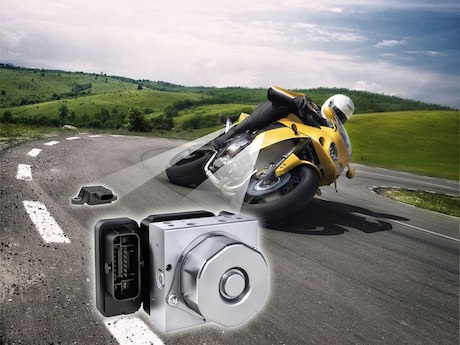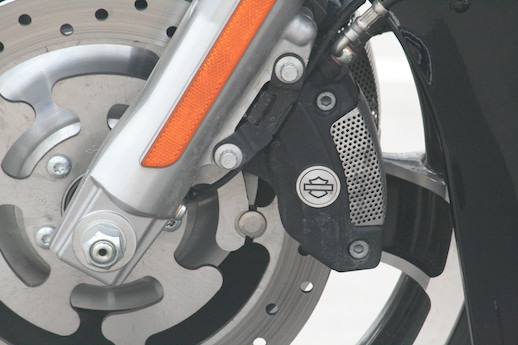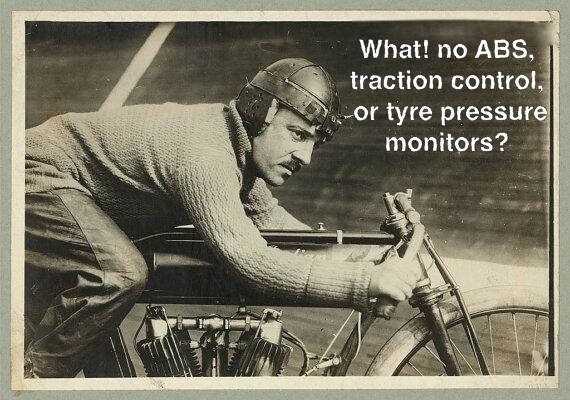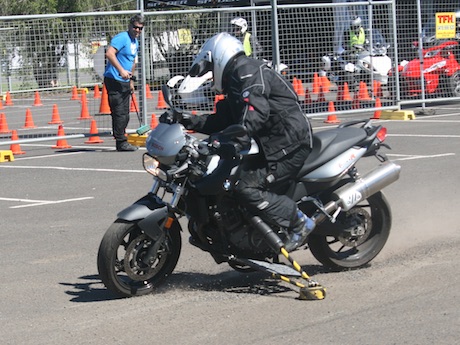Australia is planning to follow Europe in making anti-lock brakes (ABS) mandatory on all new motorcycles over 125cc and either ABS or combined braking system (CBS) for bikes under 125cc.
We would join countries such as India, Brazil, Taiwan and Japan in moving toward compulsory motorcycle ABS.
The Federal Government cites statistical research that claims ABS would reduce injury crashes by up to a third.
Last year, the first real-world analysis of the effectiveness of ABS confirmed that ABS would have an effect, but did not quantify it.
Furthermore, the lead researcher said more research was needed and claimed about half the riders didn’t even apply their bikes before crashing.
Optional ABS

Now the Motorcycle Council of NSW, in its latest position statement, says it does not believe mandatory ABS would reduce the number of crashes.
And until its effectiveness can be proven, the MCCNSW says the additional cost of fitting ABS should be optional for riders.
As of 2017, about 40% of all motorcycles sold in Australia are already equipped with ABS and manufacturers such as BMW and Harley-Davidson only sell motorcycles equipped with ABS.

The Regulation Impact Statement (RIS) released by the Department for Infrastructure and Regional Development predicts that the introduction of ABS on motorcycles will result in a 33% reduction in injury crashes and 39% in serious and fatal crashes.
MCCNSW treasurer Steve Pearce says this significant reduction in crashes seems “too good to be true” as it suggests that a third of current crashes involved a locked wheel.
“This is a number the MCCNSW has difficulty comprehending,” he says.
ABS training
If the government goes ahead with mandatory motorcycle ABS, it would need to make provisions to provide riders with education or training on ABS, the MCCNSW says.
“Riders need to be taught in a controlled environment by trainers who can demonstrate how ABS works on a motorcycle and how to use ABS to its best advantage in an emergency,” Steve says.
“Depending on the road surface, the ABS, suspension setup and weight of the rider interact to stop the motorcycle, so riders need to practise on real road surfaces on the motorcycle that they own.
“We also have the situation where ABS does not perform well on dirt roads, so we also advocate the ability to switch off ABS on bikes that are likely to be used on dirt roads.”
Background: The introduction of vehicle ABS
When ABS was introduced on cars in the 1980s, it was predicted to significantly reduce crashes, but that did not occur, Steve says.
“It has been found that drivers don’t understand how ABS works and tend to over-compensate in an emergency, believing that ABS will reduce stopping distances,” he says.
“Recent advice given to drivers include practising activating the ABS so they are familiar with how the brake pedal feels when the ABS activates, to reduce the likelihood of the driver releasing pressure on the pedal.”
MCCNSW proposes the following if ABS is made mandatory on all motorcycles above 125cc:
- MCCNSW will form a Working Group of stakeholders to oversee the program and to monitor the reduction in road trauma to ensure that the predicted 33% of all injury crashes and 39% of serious and fatal crashes is achieved; and
- MCCNSW will continue to lobby government to provide education and training on ABS.
BMW demonstrates ABS
The education and training requirements to be provided should include:
- Information on how ABS works;
- Information on stopping distance with and without ABS on a range of surfaces commonly encountered on the road network;
- Demonstrations by expert riders;
- Video clips on how ABS works and how it should be used to gain the best benefit;
- Opportunities to practise on motorcycles equipped with outriggers and ABS; and
- Opportunities for riders to test their motorcycles on yet-to-be-developed simulators.




